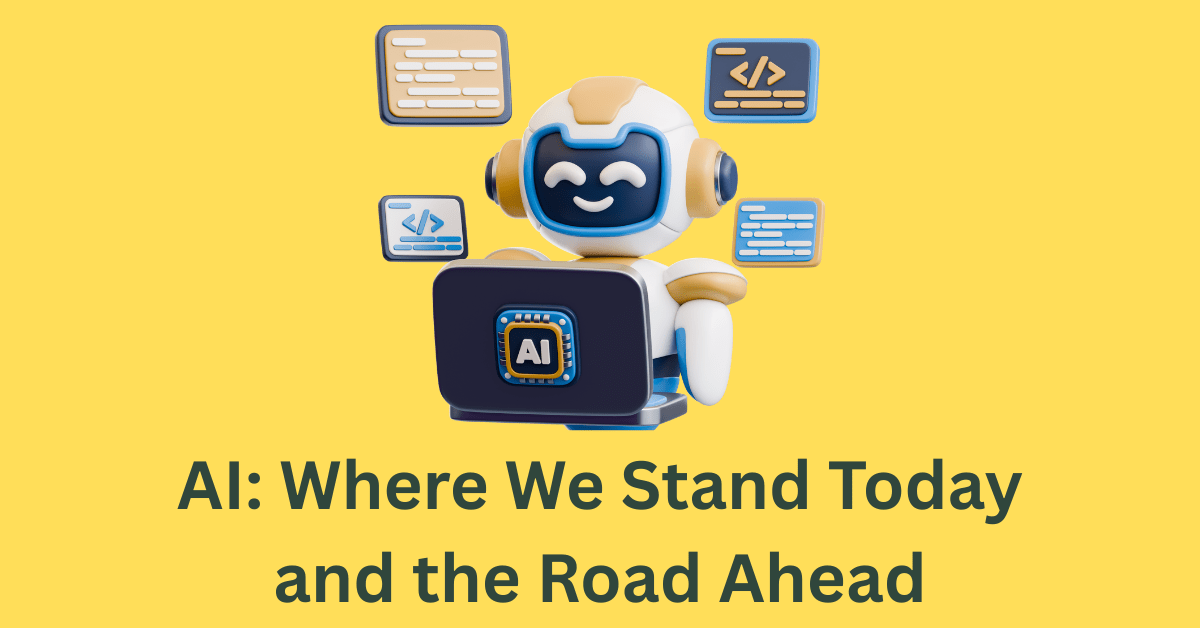November 13, 2025

Play with me for a moment, run your imagination to 50 years ahead, not much, just 50 years, a time when some of us and, definitely, our kids would be active participants of the society. Let’s say there are two scenarios:
1. AI machines and cyborgs are ruling humans and every other species; they treat us like those chickens at our mercy, whom we kill for our safety whenever there is an avian flu scare.
2. Humans have used super advanced machines to optimize everything – products, services, civil society, regional conflicts, geopolitical strife, climate, our lives, and have a relaxed time on the beaches of Florida or the Maldives
The truth will be most likely somewhere in between. But how much towards #1 or #2, can’t even be guessed.
The Industrial Revolution in the early 1800s brought about forever-lasting changes when we moved from largely manual and mechanical. The hum of machines replaced human drudgery. Productivity moved to a different level. But it was slow, and it took decades, even a century, to have a societal impact.
AI advancement has been moving at a pace that would give Gordon Moore (God bless his soul) some anxiety. He had predicted that the number of transistors on a chip (aka power) would double every two years.
With the struggle between behemoths like Google and Microsoft or new players like OpenAI who took the world by a sudden storm, or many niche developers, this area has the heat & pace which has not been witnessed ever. Instagram had about 1 billion users in 8 years, while ChatGPT was adopted by 300 million users in the first 3 months!
There are asserters and naysayers in equal numbers in Artificial Intelligence. Opinions are strong, with neither side wanting to give an inch of their turf. Let’s look at both sides dispassionately, if that is possible!
An AI machine, to start with, carries the traits of humans working on it. So, biases creep in. In 2016, Microsoft launched ‘Tay’ as a chatbot on social media. Tay was fed with wrong training, started capturing offensive data available online, and spewing it back at the users. It had to be withdrawn 16 hours after its launch.
Here, let’s extrapolate and think, can multiple chatbots, trained to create a new story like hatred towards a particular sect, disturb the social balance?
How about working to ‘create’ altogether a new narrative like a new religion?! It may just take a bit longer!
AI machines do not have emotions. They are, at best, trained to simulate emotions. That makes them mechanical. There’s no biological or hormonal system to build emotions. Of course, that’s good for humans. But for how long, and till when? With huge amounts of data on ‘experiences and emotions’ being fed, can emotions, close to those of humans, be far away?
Will that situation not bring unimaginable changes in our world? Imagine getting married to an AI robot because it can do all household tasks, be employed at a factory, and also has the ‘emotions’ of a companion! Sic!
As per a recent report, India is at a low risk of jobs being replaced or displaced by AI, just 40%! While the advanced economies have a dagger of up to 60% on their heads. How will those lost jobs be re-established? Humans are resilient, flexible, and adaptable.
Will we find ways of recovering from this upheaval? We did the same when there was an industrial revolution. But then, this ton of bricks coming towards us is immensely fast and much heavier. Do we have enough time to react and adapt?
Then there is a problem of the genie being out of the bottle, the mis-act of unregulated and unconstrained growth. Actually, a growth that surprises AI builders, too. One such discussed instance was (quoted by Sundar Pichai) when the predecessor to Google Bard was prompted minimally to learn Bengali, and it developed efficiency disproportionately to the number of inputs. Was the algorithm doing things not understood by its builders? There are more examples in the industry. Scary, isn’t it?
But then, there are not only grays, but whites too, in this progress of AI.
The world leaders and large organizations are just talking, with no regulations still in place – these regulations may never come or never be effective in light of the competitive commercial benefits to companies or States.
Let’s not be under any false impression that AI will not become smarter than humans, as it is a matter of time in many areas. We may remain much better sentients, with our emotions being our collective strength, but this is a space to be watched with pride and caution both.
Explore Topics

Consult with Our Techjockey Expert
Connect for fast and scalable software delivery, corporation plans, advanced security, and much more.
Compare Popular Software

Get the latest Techjockey US Blog Updates!
Subscribe to get the first notified about tech updates directly in your inbox.